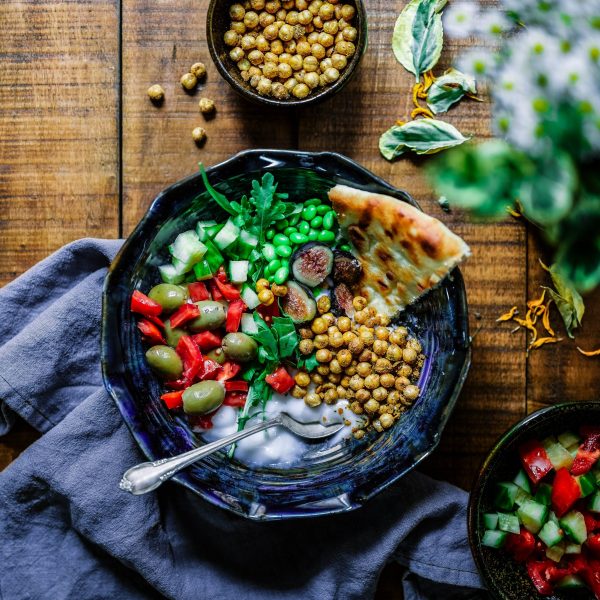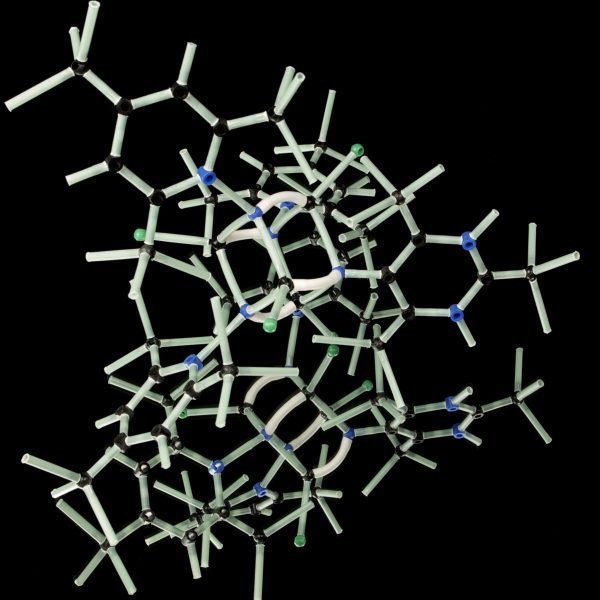Lest We Forget: Poems, Nature, Food, and Keeping Your Day Job
Sarah Underwood—
Reading poetry normally does not make me hungry, but after “Lake of Little Birds,” poet Katherine Larson had me ready for “[s]wordish/ drizzled with virgin oil, rubbed with/ mint and saffron”…and several other dishes. The 2010 winner of the Yale Series of Younger Poets prize uses her experience as a biologist to compose both the content and the form of the detailed works within Radial Symmetry. The foods she describes in her poems often become pieces of art in their own right. She observes them as carefully as any of the other biological miracles in her poetry, for which my mental taste buds are thankful. (I would also like to take a moment to appreciate that I had never found hard-boiled eggs to be very mysterious until I read “Risk.”)
 This collection of poems focuses primarily on observing and interacting with nature, which we are fortunate enough to view through the microscopic eye of a trained biologist. But any cookbook with a good enough photographer will eventually convince me to go poke around the kitchen—the reason Larson’s references to food intrigued me so much was that they are so entwined with the environments she describes. Of course, we know our food comes from nature, but with food production so removed from our modern lives, it is easy to forget how fundamental it is in creating our own environments.
This collection of poems focuses primarily on observing and interacting with nature, which we are fortunate enough to view through the microscopic eye of a trained biologist. But any cookbook with a good enough photographer will eventually convince me to go poke around the kitchen—the reason Larson’s references to food intrigued me so much was that they are so entwined with the environments she describes. Of course, we know our food comes from nature, but with food production so removed from our modern lives, it is easy to forget how fundamental it is in creating our own environments.
For example, the ocean traditionally functions as a literary symbol of life or rebirth. We see both a celebration of that tradition as well as an unsettling perversion of it. In “Crypsis and Mimicry,” the food pulled from the sea creates the most beautiful dish, as the speaker’s “Cajun friend explains/ bouillabaisse as the synthesis of red snapper and crab,/ oyster, mussel, and crayfish. Garlic and orange/ peel.” The bouillabaisse’s “synthesis” represents the sea’s life-giving bounty, so it appears the human world is in harmony with the natural world.
On the other hand, the synthetic foods humans discard in the sea create one of the most disturbing images in any of the poems: in “Ghost Nets,” we see “the rotting sea lion carcass with the plastic Coke bottle/ lodged inside its throat.” 2010 competition judge Louise Glück calls Larson’s poetry “strikingly…environmental” in the foreword, but it is never didactic. The observer merely tells us what she sees and allows our reaction to fill in the meaning: the poems may be “environmental” in the sense of green activism, but they are also “environmental” in the sense that they simply ask us to more closely examine our surroundings. The sea lion choked by plastic shocks us with its gruesomeness, but in doing so it suggests our destruction of marine life, while self-destructive, results from our unawareness and recklessness towards the world around us.
Food, life and death, and environment are all linked again in the quiet “The Oranges in Uganda.” The poem opens with the paradoxical situation of the speaker and Death “shopping for emicungwa/ at night, in the market.” That Death would take any interest in helping the living shop for fruit, especially the brightly colored oranges, seems counterintuitive. In shopping for fruit, which sustains life, Death is perhaps prolonging the lives of those he is there to take. Yet in this Ugandan market, Death speaks in the local tongue and seems to be wearing native clothing. And then when the speaker tells him that she knows “why/ people make love when they/ come home from a funeral,” we see that this is a study in defiance. Death is a part of our daily lives: Larson takes that literally here. We should not be surprised to accept him as part of our environment. What better way for him to partake in the ordinariness of human life than by preparing for the next meal, by shopping for oranges?
Sarah Underwood is a graduate of the College of William and Mary and a former Yale University Press intern. Her column, Lest We Forget, appears on the Yale Press Log.
Watch Katherine Larson dissect poetry and squid alike in this interview with PBS Newshour!
[youtube=http://www.youtube.com/watch?v=k1qZT3V86C0]



